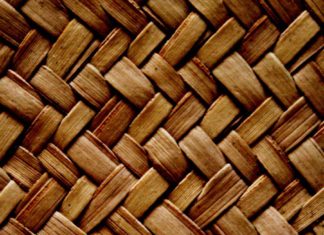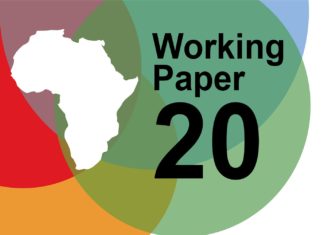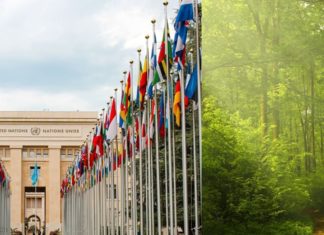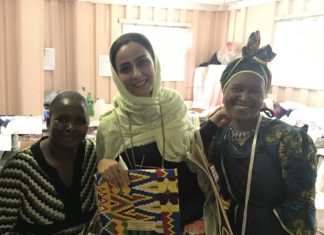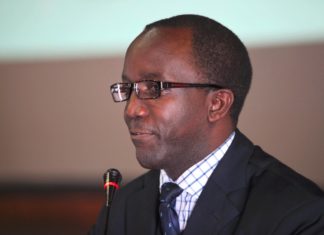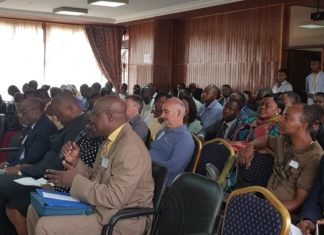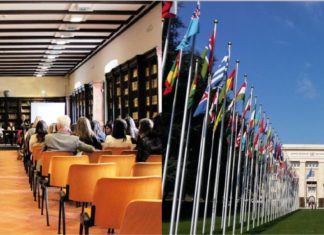Prof. Osei-Tutu speaks at the University of Ottawa
Too often, scholarly work and debates relating to Intellectual Property (IP) have focused on the protection and profits of the IP holder, as opposed to promoting open-access and the broader interests of the community. In her talk at the University of Ottawa on February 9th, Professor Janewa Osei-Tutu suggested we readjust the lens through which IP innovation is examined, using human development as the standard.
WIPO-IGC 47: Resetting IGC after 2024 Diplomatic Conference on Genetic Resources
By Chidi Oguamanam
Delegates and experts reconvene for the 47th instalment of the Intergovernmental Committee on Intellectual Property and Genetic Resources, Traditional Knowledge and Traditional Cultural Expressions...
Complexities of Social Innovation and Social Entrepreneurship by Two Indigenous Organisations...
Authored by: Britta Rutert and Cath Traynor
Abstract: In this Working Paper, we present our findings in respect of the innovative and entrepreneurial behaviour...
WIPO-IGC 43: Logjam Over Two Genetic Resources Texts
By Chidi Oguamanam, cross-posted from ABS Canada
Last Meeting on the GR Text Under the 2022-23 Biennium
May 30-June 3, 2022: Delegates met in-person and virtually...
Everywhere Still Invisible: Women and Their Traditional Knowledge
By Ghazaleh Jerban
I was so excited to be travelling to South Africa as an Open AIR NERG and QEScholar, in the middle of Canada’s notorious winter...
Expedited COVID-19 R&D: Indigenous Knowledge and ABS Imperative
With the world on edge as the COVID-19 crisis progresses, the scientific community has sprung into gear in search of an effective treatment. Research and Development (R&D) is progressing at unprecedented speeds. Amidst this rapid development, traditional knowledge plays a significant role in scientific endeavours. Through traditional knowledge, medical researchers can gain guidance and inspiration and bypass prolonged and expensive scatter-gun approaches to R&D.
Dr. Kakooza “Dealing with Trans-Border Quasi-Intellectual Property”
In October 2010, Yoweri Museveni, the President of Uganda, recorded a rap song titled: "Do You Want Another Rap?" as part of his re-election campaign to capture the imagination of young voters. The song was a huge success and may have played a part in his reelection. When Museveni applied for a copyright registration of the song, however, members of the Ankole community filed an objection stating that the song was derived from Ankole folklore. While the Registrar of Copyrights in Uganda eventually allowed Museveni's copyright application for registration, this case triggered Dr. Anthony Conrad K. Kakooza's interest in the area of traditional cultural expressions (TCEs) and whether TCEs should be recognized within the domain of intellectual property (IP) law.
Innovation, connaissances traditionnelles et ressources biologiques, Yaoundé
Par : Abdelhamid Benhmade
Le Colloque de Yaoundé, 2019, est organisé par l’Université Catholique d’Afrique Centrale, en partenariat avec l’Institut Universitaire d’Abidjan et l’Université Toulouse Capitole....
US Fails to Block Progress over Genetic Resources Text at WIPO-IGC...
Photo credit: Image by Ville Oksanen via Flickr (CC BY-SA 2.0)
By Chidi Oguamanam, cross-posted from ABS Canada.
After six days of deliberations (June 24-29, 2018) to secure...
WIPO-IGC 45: Bold and Strategic Moves Toward TK and TCE Text(s)
By Chidi Oguamanam
Buoyed by the July 2022 WIPO 62nd General Assembly decision that endorsed a Diplomatic Conference on Genetic Resources (GR) and Associated Traditional...

